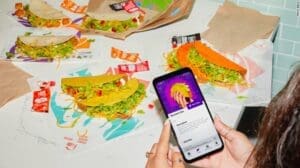 Taco Bell continues to be innovative in its efforts to get tacos into its customers hands. A few weeks ago, I wrote about a Taco Bell franchisee that is building a new restaurant that the chain said will be the fastest way to get its food: a two-story, technology-heavy unit with four drive-thru lanes dubbed Taco Bell Defy. Of the four drive-thru lanes, three will be devoted to advanced orders. Now the company is launching a subscription service. Customers with the Taco Lover’s Pass can order one crunchy taco, soft taco, spicy potato soft taco or Doritos Locos taco per day for 30 days straight on the chain’s app. The cost of the pass ranges from $5 to $10 a month, depending on the location. The chain is testing the program across 17 locations in Tucson, Arizona from September 9 until November 24. Talk about a cool concept. And now on to this week’s logistics news.
Taco Bell continues to be innovative in its efforts to get tacos into its customers hands. A few weeks ago, I wrote about a Taco Bell franchisee that is building a new restaurant that the chain said will be the fastest way to get its food: a two-story, technology-heavy unit with four drive-thru lanes dubbed Taco Bell Defy. Of the four drive-thru lanes, three will be devoted to advanced orders. Now the company is launching a subscription service. Customers with the Taco Lover’s Pass can order one crunchy taco, soft taco, spicy potato soft taco or Doritos Locos taco per day for 30 days straight on the chain’s app. The cost of the pass ranges from $5 to $10 a month, depending on the location. The chain is testing the program across 17 locations in Tucson, Arizona from September 9 until November 24. Talk about a cool concept. And now on to this week’s logistics news.
- Walmart to test autonomous cars for deliveries
- UPS to acquire Roadie, hire 100,000 seasonal workers
- Amazon adding 125,000 workers, opening dozens of facilities
- Port delays lengthen as winter peak draws near
- Kroger, Instacart aim for 30-minute grocery delivery
- Zomato pulls grocery delivery business off the menu
- China’s WeRide unveils electric, autonomous cargo van
- Procter & Gamble pledges net zero emissions by 2040
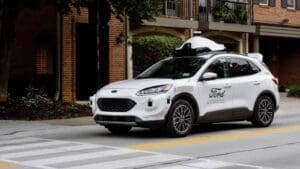 Walmart is expanding its self-driving vehicle program to include Ford Motor and Argo AI, an autonomous car start-up backed by the automaker. The companies said Wednesday that the collaboration will use Ford Escape hybrids with Argo AI technology for Walmart deliveries in Miami, the District of Columbia and Austin, Texas. The program will allow Walmart customers to place orders of groceries and other items online for door-to-door autonomous delivery. The new collaboration is the first multicity service regarding autonomous vehicles for Walmart.
Walmart is expanding its self-driving vehicle program to include Ford Motor and Argo AI, an autonomous car start-up backed by the automaker. The companies said Wednesday that the collaboration will use Ford Escape hybrids with Argo AI technology for Walmart deliveries in Miami, the District of Columbia and Austin, Texas. The program will allow Walmart customers to place orders of groceries and other items online for door-to-door autonomous delivery. The new collaboration is the first multicity service regarding autonomous vehicles for Walmart.
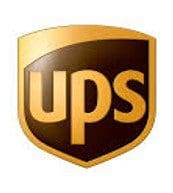 Same-day delivery is becoming more of an expectation for customers these days. As the pressure builds, UPS has announced it is acquiring Roadie, a same-day delivery platform. Roadie says it has 200,000 verified drivers who deliver to more than 20,000 zip codes. Roadie will continue to operate under its own name, and goods transported by the company will not cross into the UPS network. According to UPS, “Roadie often provides service for shipments not compatible with the UPS network because of their size and perishable nature, and often because they are in shopping bags without the packaging required to move through the UPS system.” The deal is expected to close in the fourth quarter, and terms were not disclosed.
Same-day delivery is becoming more of an expectation for customers these days. As the pressure builds, UPS has announced it is acquiring Roadie, a same-day delivery platform. Roadie says it has 200,000 verified drivers who deliver to more than 20,000 zip codes. Roadie will continue to operate under its own name, and goods transported by the company will not cross into the UPS network. According to UPS, “Roadie often provides service for shipments not compatible with the UPS network because of their size and perishable nature, and often because they are in shopping bags without the packaging required to move through the UPS system.” The deal is expected to close in the fourth quarter, and terms were not disclosed.
In a separate announcement, UPS said it plans to hire more than 100,000 seasonal workers for the upcoming holiday season. The jobs include full and part-time positions, such as package handlers and drivers.
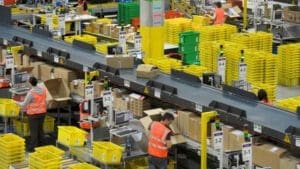 Speaking of holiday season hiring, Amazon is getting ahead of the rush as well. The company announced that it is hiring 125,000 employees in the US and raising its average starting wage. This comes at a time when Amazon is trying to expand its warehouse operations in a very tight labor market. Amazon said it has lifted pay for workers in such facilities to an average of $18.32 an hour. Additionally, following in the footsteps of Walmart and Target, Amazon is will cover the cost of college tuition, fees, and textbooks for hourly employees in its operations network after 90 days of employment. As the rush to get packages shipped across the country continues, Amazon plans to open 100 more facilities across the country in September, adding to the 250 facilities it has already opened this year.
Speaking of holiday season hiring, Amazon is getting ahead of the rush as well. The company announced that it is hiring 125,000 employees in the US and raising its average starting wage. This comes at a time when Amazon is trying to expand its warehouse operations in a very tight labor market. Amazon said it has lifted pay for workers in such facilities to an average of $18.32 an hour. Additionally, following in the footsteps of Walmart and Target, Amazon is will cover the cost of college tuition, fees, and textbooks for hourly employees in its operations network after 90 days of employment. As the rush to get packages shipped across the country continues, Amazon plans to open 100 more facilities across the country in September, adding to the 250 facilities it has already opened this year.
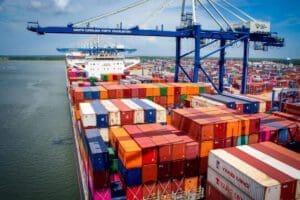 In the last bit of holiday season news, port delays continue to lengthen as the holiday season approaches. By one data point, the flow of inbound containers entering the Port of Los Angeles increased 60 percent for August 2021 as compared to the same month last year. That surge has created the highest differential at that California facility than at any port tracked by Container xChange over the past three years. According to Container xChange’s co-founder and CEO, Christian Roeloffs, in addition to causing congestion, that condition will likely lead to higher demurrage and detention charges, higher spot rates and surcharges, and intermodal delays.
In the last bit of holiday season news, port delays continue to lengthen as the holiday season approaches. By one data point, the flow of inbound containers entering the Port of Los Angeles increased 60 percent for August 2021 as compared to the same month last year. That surge has created the highest differential at that California facility than at any port tracked by Container xChange over the past three years. According to Container xChange’s co-founder and CEO, Christian Roeloffs, in addition to causing congestion, that condition will likely lead to higher demurrage and detention charges, higher spot rates and surcharges, and intermodal delays.
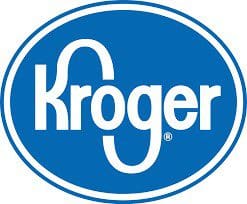 Kroger has announced that it is partnering with Instacart to bring 30-minute grocery delivery to the market. Kroger tested 30-minute delivery about two years ago but found it difficult to expand the service quickly with only its staff picking and delivering orders. According to Kroger CEO Rodney McMullen, partnering with Instacart will make it easier to expand the service because Instacart has the “technology and shoppers in place to pick and deliver grocery staples, household products and prepared meals from Kroger’s more than 2,700 stores.” With more companies popping up promising 15-minute grocery delivery in densely packed urban areas, it is not surprising to see more partnerships for large grocers to make faster deliveries as well.
Kroger has announced that it is partnering with Instacart to bring 30-minute grocery delivery to the market. Kroger tested 30-minute delivery about two years ago but found it difficult to expand the service quickly with only its staff picking and delivering orders. According to Kroger CEO Rodney McMullen, partnering with Instacart will make it easier to expand the service because Instacart has the “technology and shoppers in place to pick and deliver grocery staples, household products and prepared meals from Kroger’s more than 2,700 stores.” With more companies popping up promising 15-minute grocery delivery in densely packed urban areas, it is not surprising to see more partnerships for large grocers to make faster deliveries as well.
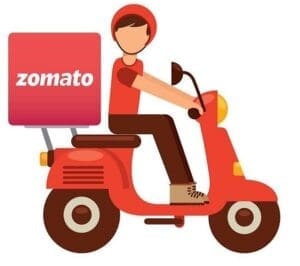 Grocery delivery is not for everyone though. Indian food delivery giant Zomato Ltd has abandoned plans to diversify into delivering groceries for the second time in two years, citing infrastructure gaps in a highly competitive online grocery market. Zomato first dabbled with the e-grocery category in April last year in a bid to exploit a surge in demand for e-groceries during the first wave of the pandemic. However, the company said “we have decided to shut our grocery pilot and, as of now, have no plans to run any other form of grocery delivery” citing gaps in order fulfilment, leading to poor customer experience. The company will still operate its B2B essentials and grocery delivery service offering for restaurants through Hyperpure.
Grocery delivery is not for everyone though. Indian food delivery giant Zomato Ltd has abandoned plans to diversify into delivering groceries for the second time in two years, citing infrastructure gaps in a highly competitive online grocery market. Zomato first dabbled with the e-grocery category in April last year in a bid to exploit a surge in demand for e-groceries during the first wave of the pandemic. However, the company said “we have decided to shut our grocery pilot and, as of now, have no plans to run any other form of grocery delivery” citing gaps in order fulfilment, leading to poor customer experience. The company will still operate its B2B essentials and grocery delivery service offering for restaurants through Hyperpure.
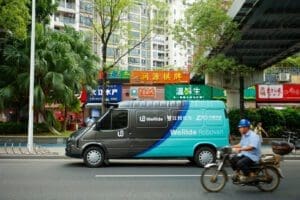 Chinese autonomous driving company WeRide has unveiled its first cargo van. The company will work with Chinese automobile manufacturer Jiangling Motors (JMC) and Chinese express delivery company ZTO Express to commercialize its first self-driving van at scale. According to a statement, as part of the agreement, WeRide and JMC will jointly design purpose-built models of the Robovan for mass production on JMC’s assembly lines, and ZTO will put the Robovans to use in their urban logistics service. WeRide says its van already has Level 4 autonomous capabilities, which the Society of Automotive Engineers defines as a car that takes the wheel and doesn’t require human interaction in most cases, although a human still has the option to manually override.
Chinese autonomous driving company WeRide has unveiled its first cargo van. The company will work with Chinese automobile manufacturer Jiangling Motors (JMC) and Chinese express delivery company ZTO Express to commercialize its first self-driving van at scale. According to a statement, as part of the agreement, WeRide and JMC will jointly design purpose-built models of the Robovan for mass production on JMC’s assembly lines, and ZTO will put the Robovans to use in their urban logistics service. WeRide says its van already has Level 4 autonomous capabilities, which the Society of Automotive Engineers defines as a car that takes the wheel and doesn’t require human interaction in most cases, although a human still has the option to manually override.
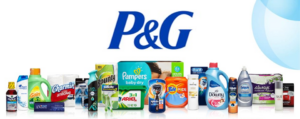 Global supply chains have notoriously been a major contributor to carbon emissions, and many companies have made the move to clean up their operations. Procter & Gamble (P&G) made a major announcement this week, declaring that it plans to achieve net zero greenhouse gas emissions across its operations and supply chain by 2040. The new targets are part of a climate transition action plan that P&G is detailing for the first time. The company says the aim is to cut emissions “from raw material to retailer.” According to P&G, the inclusion of its supply chain and logistics is critical because those emissions are about 10 times greater than the company’s own operations; without that, the company wouldn’t really be making a dent in its carbon footprint. P&G is working to slash Scope 1 (direct emissions from its factories and offices) and Scope 2 (emissions caused by the purchase of energy for P&G facilities). The company says it currently gets 97 percent of its power from renewable electricity and the goal is to get to 100 percent by 2030.
Global supply chains have notoriously been a major contributor to carbon emissions, and many companies have made the move to clean up their operations. Procter & Gamble (P&G) made a major announcement this week, declaring that it plans to achieve net zero greenhouse gas emissions across its operations and supply chain by 2040. The new targets are part of a climate transition action plan that P&G is detailing for the first time. The company says the aim is to cut emissions “from raw material to retailer.” According to P&G, the inclusion of its supply chain and logistics is critical because those emissions are about 10 times greater than the company’s own operations; without that, the company wouldn’t really be making a dent in its carbon footprint. P&G is working to slash Scope 1 (direct emissions from its factories and offices) and Scope 2 (emissions caused by the purchase of energy for P&G facilities). The company says it currently gets 97 percent of its power from renewable electricity and the goal is to get to 100 percent by 2030.
That’s all for this week. Enjoy the weekend and the song of the week, Danger! High Voltage by the Electric Six.

















